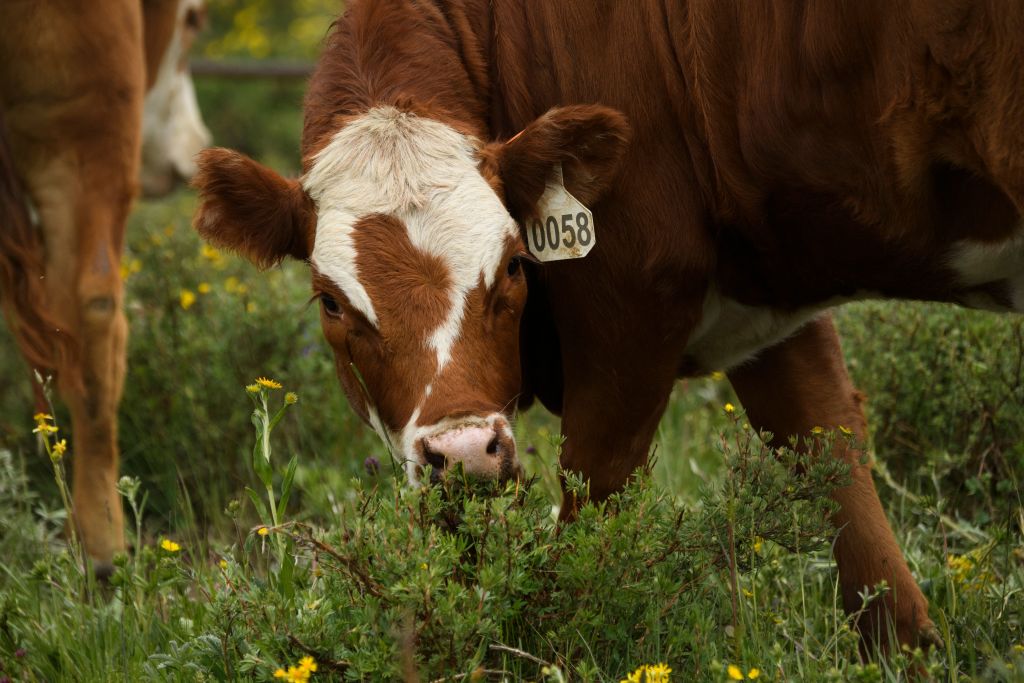The rush for ivermectin has 'strained the equine and livestock world'


A free daily email with the biggest news stories of the day – and the best features from TheWeek.com
You are now subscribed
Your newsletter sign-up was successful
All this talk of ivermectin isn't coming at a detriment to humans alone — it could leave vulnerable animals without the proper medicine needed for care, as veterinarians, ranchers, and farmers contend with surging public demand, The New York Times reports.
"I really think that's why we have a shortage, because so many people are using it," said Dr. Karen Emerson, a veternarian based in Mississippi. A common animal dewormer, ivermectin has emerged as an ill-informed method of warding off or battling COVID-19 in humans, writes the Times. Certain formulations of the drug can reportedly treat head lice and other ailments in people — but the FDA has warned Americans to otherwise leave the drug alone.
Still, the increase in demand has "strained the equine and livestock world," writes the Times. Some farm owners, ranchers, and vets have been forced to switch to generic or more expensive alternatives, while others have used "expired ivermectin or quietly stockpiled the drug when they could." But many, said the Times, are just alarmed.
The Week
Escape your echo chamber. Get the facts behind the news, plus analysis from multiple perspectives.

Sign up for The Week's Free Newsletters
From our morning news briefing to a weekly Good News Newsletter, get the best of The Week delivered directly to your inbox.
From our morning news briefing to a weekly Good News Newsletter, get the best of The Week delivered directly to your inbox.
Marc Fillion, a farmowner from South Carolina who uses ivermectin for his livestock, told the Times he is "pretty worried." He said, for instance, not treating young pigs with the medicine could have ultimately fatal consequences. And one Las Vegas animal supply store, for its part, is asking customers to show a photo of themselves with their horse in order to purchase the drug.
Such experiences "underscore the real-world effects of misinformation and how far the fallout can spread," Kolina Koltai, a conspirary theory researcher at the University of Washington, told the Times.
"It doesn't just affect the communities that believe in misinformation," she said. "This is something that's affecting even people who don't have a stake in the vaccine — it's affecting horses." Read more at The New York Times.
A free daily email with the biggest news stories of the day – and the best features from TheWeek.com
Brigid Kennedy worked at The Week from 2021 to 2023 as a staff writer, junior editor and then story editor, with an interest in U.S. politics, the economy and the music industry.
-
 Quiz of The Week: 14 – 20 February
Quiz of The Week: 14 – 20 FebruaryQuiz Have you been paying attention to The Week’s news?
-
 The Week Unwrapped: Do the Freemasons have too much sway in the police force?
The Week Unwrapped: Do the Freemasons have too much sway in the police force?Podcast Plus, what does the growing popularity of prediction markets mean for the future? And why are UK film and TV workers struggling?
-
 Properties of the week: pretty thatched cottages
Properties of the week: pretty thatched cottagesThe Week Recommends Featuring homes in West Sussex, Dorset and Suffolk
-
 A Nipah virus outbreak in India has brought back Covid-era surveillance
A Nipah virus outbreak in India has brought back Covid-era surveillanceUnder the radar The disease can spread through animals and humans
-
 Trump HHS slashes advised child vaccinations
Trump HHS slashes advised child vaccinationsSpeed Read In a widely condemned move, the CDC will now recommend that children get vaccinated against 11 communicable diseases, not 17
-
 Covid-19 mRNA vaccines could help fight cancer
Covid-19 mRNA vaccines could help fight cancerUnder the radar They boost the immune system
-
 FDA OKs generic abortion pill, riling the right
FDA OKs generic abortion pill, riling the rightSpeed Read The drug in question is a generic version of mifepristone, used to carry out two-thirds of US abortions
-
 The new Stratus Covid strain – and why it’s on the rise
The new Stratus Covid strain – and why it’s on the riseThe Explainer ‘No evidence’ new variant is more dangerous or that vaccines won’t work against it, say UK health experts
-
 RFK Jr. vaccine panel advises restricting MMRV shot
RFK Jr. vaccine panel advises restricting MMRV shotSpeed Read The committee voted to restrict access to a childhood vaccine against chickenpox
-
 Texas declares end to measles outbreak
Texas declares end to measles outbreakSpeed Read The vaccine-preventable disease is still spreading in neighboring states, Mexico and Canada
-
 RFK Jr. shuts down mRNA vaccine funding at agency
RFK Jr. shuts down mRNA vaccine funding at agencySpeed Read The decision canceled or modified 22 projects, primarily for work on vaccines and therapeutics for respiratory viruses
